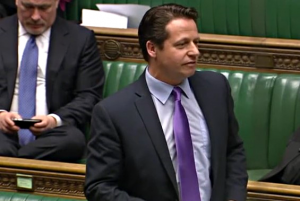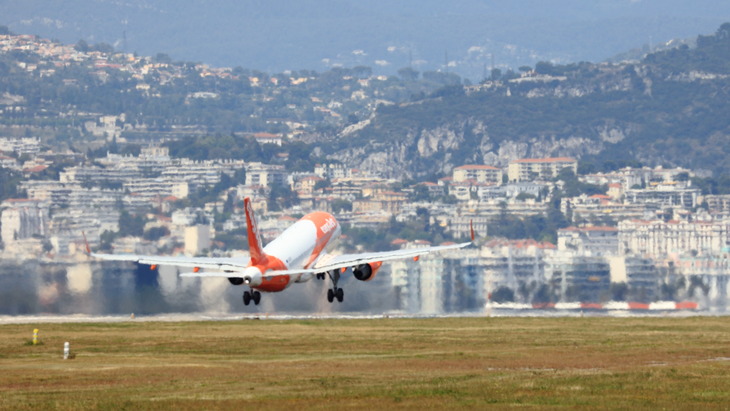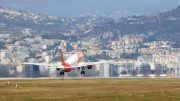New agreements maintaining market access for United Kingdom airlines operating in Europe must be quickly put in place or they will lose the legal right to operate services, Parliament will be told today.
The UK has the largest aviation market in Europe and it needed to be protected post-Brexit, Nigel Huddleston, the MP for Mid Worcestershire, and former head of travel and tourism at Google, the internet giant, told Chief-exec.com.
He said tourism in general was a £127 billion pound a year industry – around 9 per cent of GDP – and incorporated more than 200,000 SMEs. There were about three million tourism associated jobs.
 Mr Huddleston, pictured left, who initiated today’s debate on the potential effect of the UK leaving the European Union (EU) on UK tourism, said outbound tourism – including companies such as Thomas Cook, Virgin and British Airways – employed about 215,000 UK residents.
Mr Huddleston, pictured left, who initiated today’s debate on the potential effect of the UK leaving the European Union (EU) on UK tourism, said outbound tourism – including companies such as Thomas Cook, Virgin and British Airways – employed about 215,000 UK residents.
“There is no getting away from the fact that the access the UK currently enjoys [in air services] comes from our membership of the EU,” he said.
“This includes not only access to the EU market but those outside Europe, with the UK also benefiting from being part of the EU’s aviation agreements with other countries, including, crucially, the EU-US Open Skies Agreement.
“Unless the Government reaches new agreements on maintaining market access airlines will have no legal right to operate services and there are no minimum alternatives to fall back on.”
The Minister for Tourism, Tracey Crouch, will address MPs today at the end of the debate.
A spokeswoman for the Minister told Chief-exec.com yesterday that the government was working with the industry to ensure “the best possible outcome for the sector and the UK as a whole”.
A spokeswoman for easyJet, the UK’s largest airline, said the opening of Europe’s skies by the EU had allowed easyJet to expand within Europe. It employed about 10,000 people in 27 bases across eight European countries.
“Today we are a pan-European airline carrying over 70 million passengers on over 800 routes. Over 60 per cent of our passengers originate from outside the UK and two-thirds of our routes don’t touch the UK at all,” she said.
“After the UK leaves the EU easyJet simply wants to continue to fly our passengers and employ our people across Europe as we do today. …
“That is easyJet’s preferred option and the focus of our efforts. However, as this clearly requires agreement between the UK and EU, easyJet is also exploring other options which include the establishment of an air operator certificate (AOC) in a European country to enable easyJet to fly across Europe as we do today. EasyJet has now started a formal process to acquire an AOC.”
Mr Huddleston said it was also important to show “that we are a welcoming nation” and do everything possible to debunk the myth that the decision to withdraw from the EU meant the UK was any less welcoming.
The UK tourism sector was highly dependent on overseas workers, especially in London where 70 per cent of hospitality employees were from the EU.
“The Government needs to provide reassurances that they are welcome, valued and that it is the Government’s intention that their right to stay in the UK is unaffected by the referendum,” he said.
The chief executive of the British Hospitality Association (BHA), Ufi Ibrahim, said a recently conducted survey of its members found that the majority of respondents considered the protection and continuation of the free movement of the hospitality workforce imperative to the continued success of their business.
“Hospitality has contributed enormously to delivering the record low rates of unemployment currently enjoyed in the UK, creating one in five new jobs since 2010,” she said.
“The BHA estimates that a minimum 15 per cent of the workforce is from the EU, which equates to almost 700,000 jobs.”
Ms Ibrahim said that if access to workforce was constrained it would hit growth in the sector and reduce the attractiveness of the UK as a place to invest in hotels, visitor attractions and hospitality businesses.
“This would have consequences for British-born workers, some of whom would struggle to get into other sectors because of their lack of academic attainment.”
A spokeswoman for Visit Britain said 2015 had seen a new record for inbound tourism to the UK, with 36.1m visits – 5 per cent up on 2014 – and spending was up 1 per cent to £22.1bn.
“Visits from the EU accounted for more than two-thirds (67 per cent) of all our inbound visits in 2015 and just under half of spending (44 per cent),” she said.
By Aban Contractor



